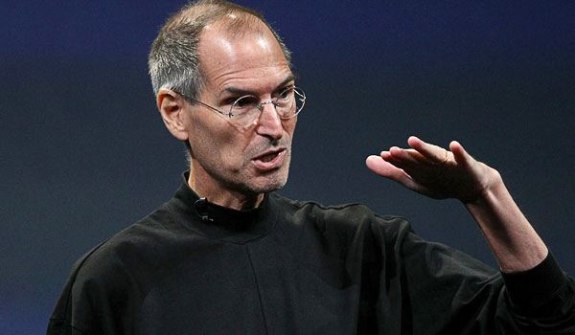With Nintendo’s recent financial report and the company’s bungling of the 3DS, a lot of people are saying that Nintendo is doomed. As someone that has covered the company for several console generations…
Welcome to Coffee Talk! Let’s start off the day by discussing whatever is on your (nerd chic) mind. Every morning I’ll kick off a discussion and I’m counting on you to participate in it. If you’re not feelin’ my topic, feel free to start a chat with your fellow readers and see where it takes you. Whether you’re talking about videogames, how many idiots it takes to perform a successful server migration, Austin Aries on Impact Wrestling, or not missing Alex Rodriguez in the slightest, Coffee Talk is the place to do it.
With Nintendo’s recent financial report and the company’s bungling of the 3DS, a lot of people are saying that Nintendo is doomed. As someone that has covered the company for several console generations, I find this amusing. We’ve come full circle! People were saying that Nintendo was doomed during the N64 and GameCube days, ignoring the heaps of money it was making with its Game Boy products. When the Nintendo DS and Wii were breaking sales records, people were asking, “Can anyone stop Nintendo???” A rough launch, currency exchange issues, and the tail-end of a console’s lifespan have Nintendo doomed (again). Funny how it goes….
One of the byproducts of this gloom-and-doom reporting is that “experts” believe that Nintendo should ditch the hardware business and focus strictly on software. In a lot of ways, it reminds me of how people used to clamor for Apple to get out of the hardware business and just be an outstanding software developer. Yesterday I read an extremely stupid article written by a writer I usually enjoy. TheAppleBlog’s Darrell Etherington wrote:
Nintendo wouldn’t be the first gaming company to stop making hardware and turn its attention entirely to software if it did change its focus to developing for Apple. Sega made the same move back in 2001, based in part on the same kind of mistake that’s causing Nintendo’s headaches today.
That’s one of the dumbest comparisons I’ve read all year. First of all, the financial situations are completely different. Nintendo has always enjoyed great margins on its hardware. Even when it was being outsold by Sega, Sony, and Microsoft, it made strong profits on hardware sales. The company has always had a lot of cash in the bank. Sure, Nintendo is having a down year with a mishandled 3DS launch and the Wii being on its last legs, but how does that compare to Sega, a company that was losing money at the height of the Dreamcast’s popularity?
Secondly, why would you even mention Sega as a reason for Nintendo to drop hardware and focus on software?!? Sega went from being part of the “big three” companies in console gaming to a middle-of-the-road game publisher. That’s hardly a success story.
I just don’t understand why people are calling for Nintendo to exit the hardware business at this time. Sure, the 3DS will not be as popular as the DS. I sincerely doubt the Wii U will put up the numbers that the Wii did. Having said that, I expect the company to make a lot of money with both products. This talk of Nintendo dropping hardware seems way too premature.
What do you ladies and gents think? Should Nintendo leave the hardware business? Or is that just crazy talk? Do you think Nintendo would develop games for Android and iOS while it still sold consoles? Do you think the admiration Satoru Iwata and Steve Jobs have for each other means anything in business terms? Should Ninten-Do or Ninten-Don’t?!?






